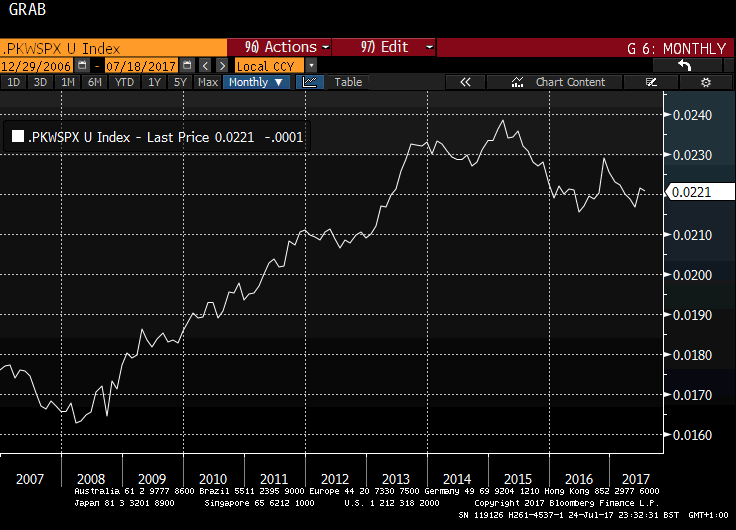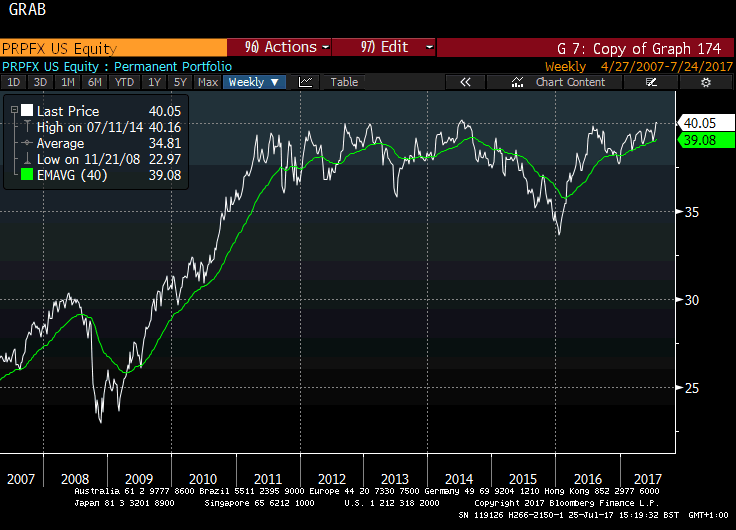"Risk versus Reward"
Thanks to a subscriber for this report from Jeffrey Saut for Raymond James which may be of interest. Here is a section:
In one such repartee, the advisor asked me to talk to her client who continues to sit on mountains of cash and refuses to invest. His reasons were the same ones we always hear at events, so I related the points as to why we think this secular bull market will continue for years, but it was all to no avail. My parting shot to the advisor and her client was, “Call me and tell me when he decides to buy stocks, because then I will become a seller”, which got a big laugh from both of them.
“Risk versus Reward,” what an interesting topic and one that is extensively covered in Ben Graham’s book The Intelligent Investor. The operative quote from that book is this, “The essence of portfolio management is the management of risks, not the management of returns.” Dr. Graham closes that thought by saying, “All good portfolio management begins and ends with this premise.” Yet managing risk is one of the hardest things to get investors to do, and that is the sad reason many participants remain scared of stocks, because they didn’t manage the risk back at the beginning of 2008. Recall, there was a warning signal sounded by Dow Theory with the “sell signal” of November 21, 2007, just like the Dow Theory “sell signal” of September 23, 1999, but I digress.
As stated, there is little doubt in our minds that the secular bull market is alive and well with years left to run, but most do not believe it because only a few of us have ever seen a secular “bull market”. Indeed, like our example of the advisor and her client who think our conclusions are reductio ad absurdum, so they scorn the concept that stocks have years left to rally. Unfortunately, many folks have felt that way for the last eight years and remain underinvested. Also unfortunately, many participants are more concerned with the short/intermediate-term directionality of the equity markets than the long-term, net-worth-changing implication of a secular bull market. To respond to those concerns, our intermediate-term model continues to flash bullish readings, while our short-term model suggests there is still the potential for some downside consternations this week. We think if that weakness arrives, it should be bought.
Here is a link to the full note.
I wrote yesterday about the potential for a rotation out of bonds and into equities but the quantity of cash on the side lines is something I hear a lot of institutional money managers talking about. Corporations have been active purchasers of stocks for almost the entire duration of this bull market to date and the weighted average cost of capital continues to support the decision to increase debt in order to buy back shares.

Of course progressively more purchases need to be made to have the same effect on the market as prices increase which is why the PKW Buyback Achievers ETF has been underperforming since while other investors have been heavily favouring either cash or bonds.
Meanwhile risk averse investors who might have focused on a permanent portfolio (equal weight between cash, stocks, bonds, commodities and real estate), were they not in cash would have earned nothing at all over the last six years. What is interesting is that this kind of strategy does best in times of synchronised global economic expansion and the US listed PRPFX is now testing the upper side of its six-year range when the price is adjusted for dividends.

I agree with Jeffrey Saut that when people are once more giving up their day jobs to trade stocks, when masses of young people are being employed by financial institutions because they need people who understand these “new markets” and when the yield curve is inverted, we will have a recipe for a top formation develop but probably not before.


